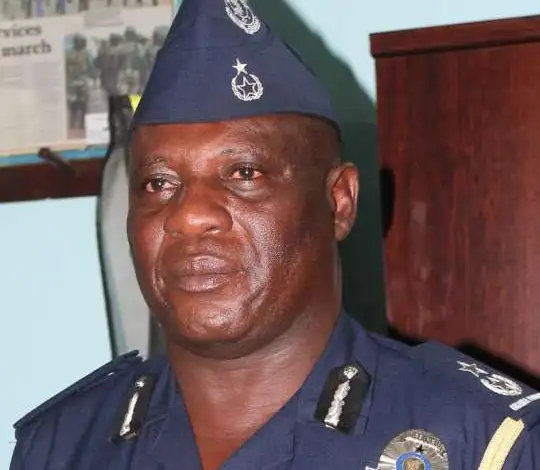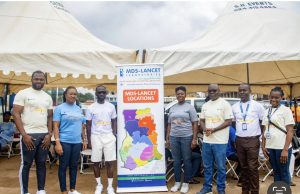Ghana’s newly appointed Inspector-General of Police, Christian Tetteh Yohuno, has initiated a sweeping reorganization of police leadership in regions plagued by illegal gold mining, locally known as galamsey.
The reshuffle, targeting commanders in the Eastern, Ashanti, Western, and Central regions, aims to disrupt entrenched networks accused of enabling environmental destruction and undermining state efforts to regulate the mining sector.
Yohuno, who assumed office in March 2025, described the move as critical to restoring public trust and ensuring police accountability in areas where illegal mining has fueled corruption, deforestation, and water pollution. The restructuring aligns with broader governmental priorities to curb galamsey, a practice blamed for devastating ecosystems and displacing communities despite repeated crackdowns.
The Ghana Police Service stated the changes prioritize deploying officers with proven integrity and tactical expertise to high-risk zones. Environmental advocates welcomed the decision, urging sustained oversight to prevent complicity between law enforcement and illicit operators. “This reshuffle signals seriousness, but lasting success depends on transparency and consistent enforcement,” said a representative from the Ghana Environmental Advocacy Group.
Analysts note the initiative reflects mounting pressure on authorities to address systemic failures in combating galamsey. Past efforts have been marred by allegations of bribery, political interference, and the resurgence of mining gangs shortly after police operations. Yohuno’s predecessor, George Akuffo Dampare, faced criticism for uneven results despite launching multiple task forces during his tenure.
The reshuffle coincides with renewed calls for interagency collaboration, including partnerships with the military and environmental agencies, to dismantle equipment supply chains and prosecute financiers. Challenges remain, however, as illegal miners often exploit porous borders and evolving tactics to evade detection.
Ghana’s struggle with galamsey underscores a wider conflict across resource-rich African nations, where informal mining sectors balance economic necessity against ecological preservation. With nearly 10% of the population reliant on small-scale mining for livelihoods, policymakers face pressure to implement solutions that deter environmental harm without destabilizing local economies.
As Yohuno’s strategy unfolds, observers emphasize the need for judicial reforms to expedite prosecutions and impose stricter penalties on offenders. The initiative’s long-term impact may hinge on whether Ghana can reconcile enforcement with community engagement, ensuring that anti-galamsey measures do not inadvertently deepen poverty in regions lacking viable alternatives.
The police overhaul marks a pivotal test for Yohuno’s leadership, with outcomes likely to shape President Nana Akufo-Addo’s legacy on environmental governance. While skepticism persists given past shortcomings, the move has reignited cautious optimism among activists who view institutional accountability as the linchpin of meaningful progress.
Send your news stories to newsghana101@gmail.com
Follow News Ghana on Google News















